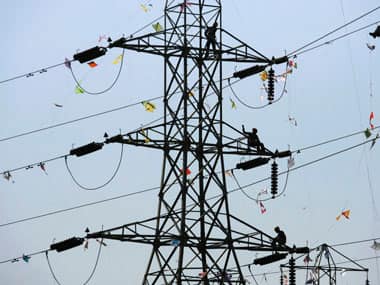India’s leading telecom players are likely to challenge a government demand for surcharges totalling more than Rs 23,000 crore on their airwave holdings and may drag the government to court after the telecom department issued notices to all operators directing them to pay a one-time fee for the same.
Telecom operators would have to pay the one-time charges for holding spectrum beyond 6.2 MHz retrospectively, from July 2008 to January 1, 2013. The government had also asked telcos to pay for spectrum beyond 4.4 MHz for the remaining period of their licences. It has fixed the charges based on the prices discovered in the November auction.
[caption id=“attachment_583506” align=“alignleft” width=“380”]
 India’s leading telecom players are likely to challenge a government demand for surcharges totalling more than Rs 23,000 crore on their airwave holdings and may drag the government to court. Reuters[/caption]
India’s leading telecom players are likely to challenge a government demand for surcharges totalling more than Rs 23,000 crore on their airwave holdings and may drag the government to court. Reuters[/caption]
The government is likely to get Rs 4,251.83 crore from retrospective charges, and Rs 18,925.82 from prospective charges for excess radiowaves held by mobile operators.In all, around Rs 23,177 crore is expected from levy of one-time spectrum fee.
India traditionally sold airwaves bundled with permits at a low state-set price, but following a scandal over the grant process a recent auction of second-generation airwaves has resulted in newer carriers paying nearly seven times more.
“Our lawyers will review those and then most probably we’ll go to TDSAT (Telecom Disputes Settlement and Appellate Tribunal),” said Rajan Mathews, director general of industry lobby Cellular Operators Association of India, which has most of the country’s major carriers among its members.
Impact Shorts
More ShortsThe government has said the surcharges on long-established carriers are aimed at creating a level playing field between old and new operators.
The older operators say the move violates the conditions of their licence agreements with the government.
BSNL tops the chart with Rs 6,912 crore, while Bharti will have to pay a surcharge of about Rs 5200 crore, the burden on Vodafone India will be about Rs 3600 crore. MTNL has to shell out Rs 3,205 crore, Idea Rs 2,113 crore (includes Rs 231.5 crore of Spice), Aircel Rs 1,365 crore (includes Rs 14 crore of Dishnet), Loop Mobile Rs 606 crore and RCom Rs 173 crore.
DoT has given telcos the option of paying a third of this charge upfront and the rest in equal annual installments based on the validity of their licences. Telecom operators not willing to pay the one-time fee have been given the option to surrender their additional and excess spectrum. The department will issue separate orders soon regarding the rate for one-time spectrum charge for CDMA operators that hold spectrum beyond 2.5 MHz in the 800 MHz band.
The surcharges are for companies operating on the GSM technology platform and are benchmarked to winning bid prices in the recent auction. Companies have the option to pay the money upfront or in annual instalments with a 9.75% interest.
Reliance Communications, which operates mobile services on both GSM and rival CDMA technology, will have to separately pay surcharges for CDMA airwaves. The CDMA surcharges are yet to be finalised as the government is waiting for an auction in March.
The 2G scandal over cut-price lucrative phone permits in India, the world’s second-biggest telecomsmarket by customers, has so far led to a former minister and several high-profile corporate executives facing trial. The Supreme Court last year ordered permits of several carriers to be revoked.
With inputs from Reuters
)